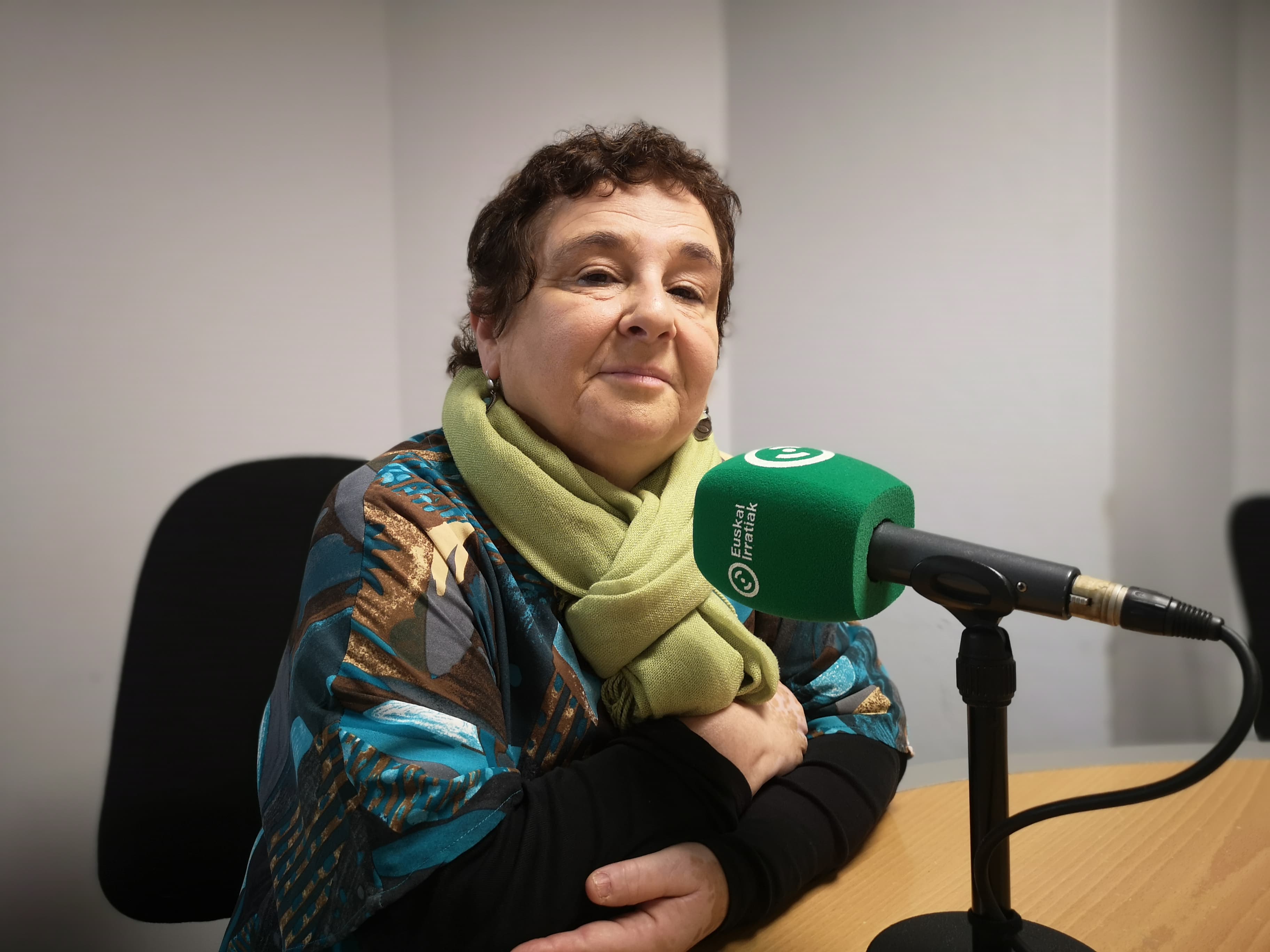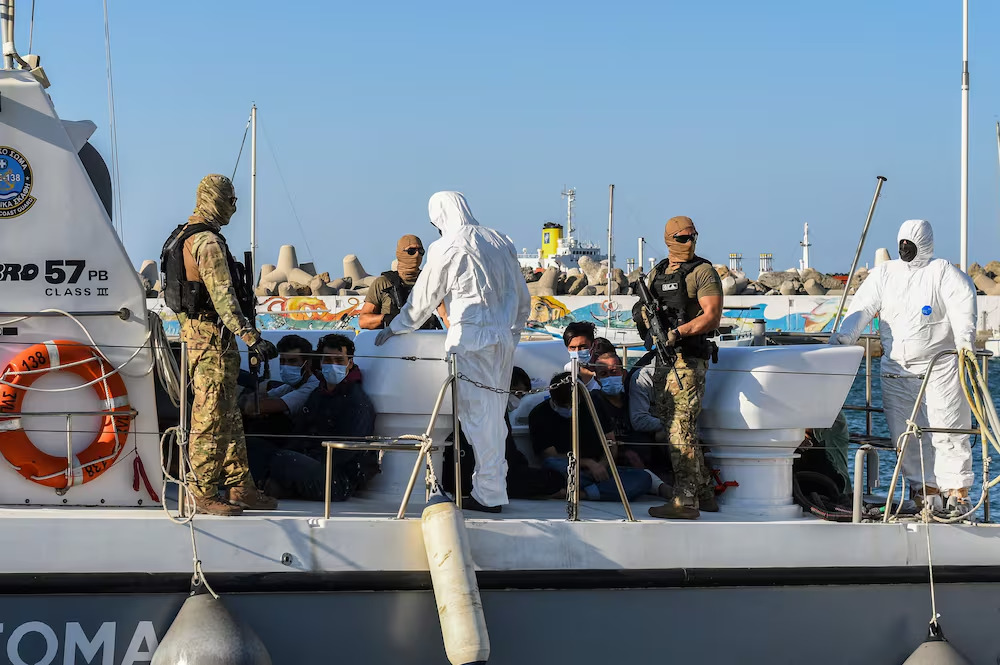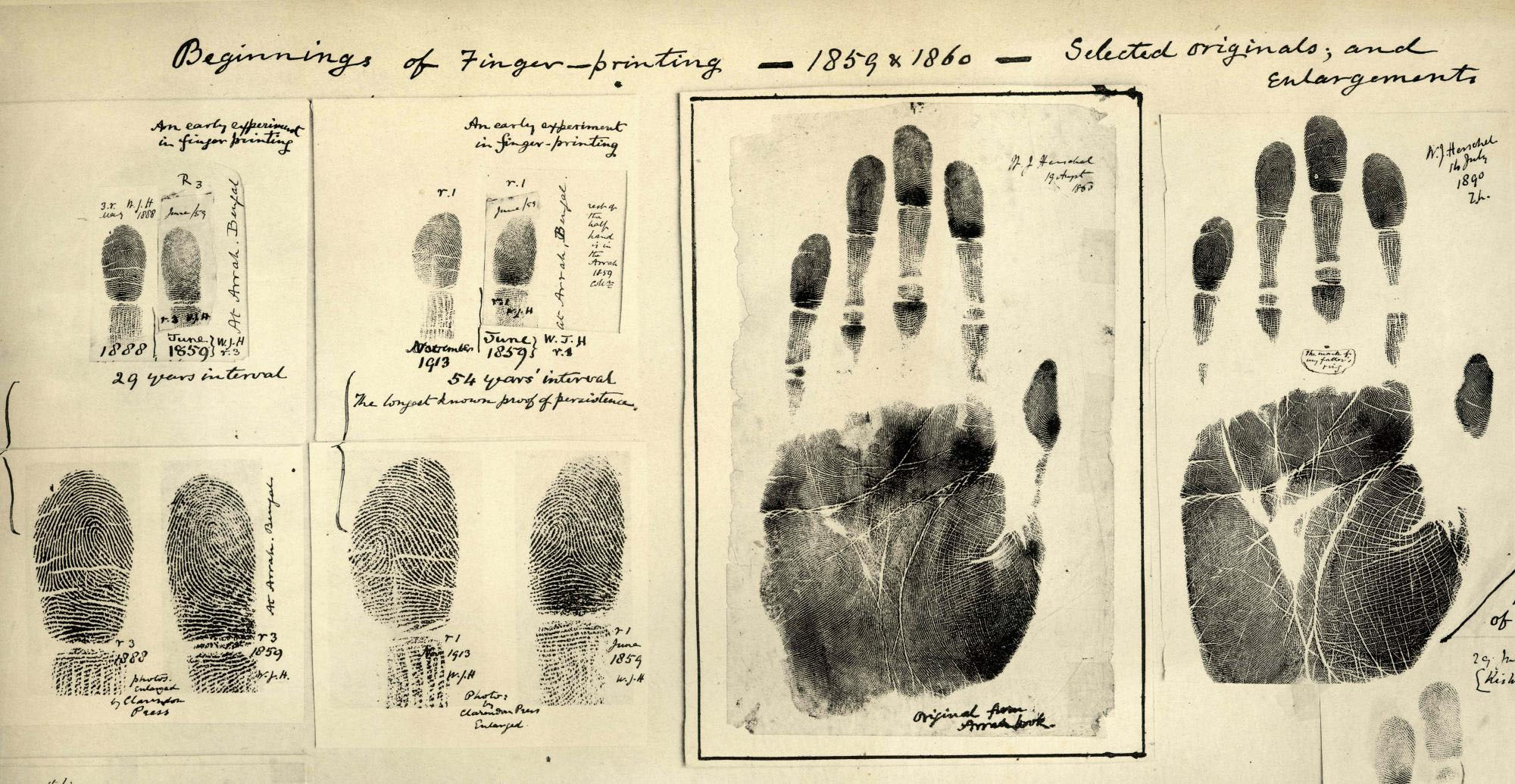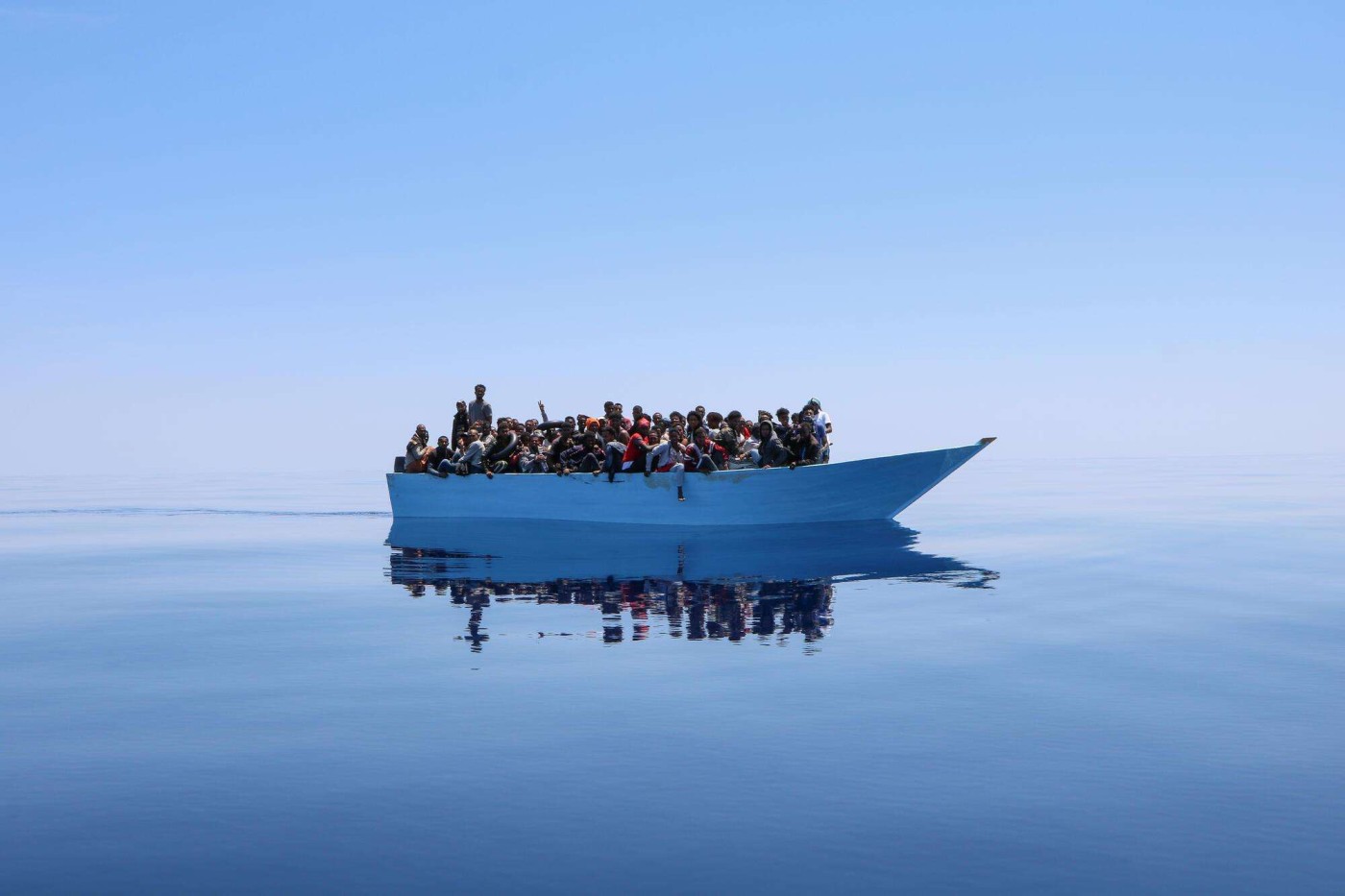Chamseddine Marzoug: Burnout of bodies that Europe does not want to see
- Former fisherman Chamseddine Marzoug has dedicated a graveyard to the bodies of refugees landed on the Tunisian beach Zarzis.En name of dignity, each one is burying one by one at the Unknown Cemetery. On the other side of the Mediterranean, the European Union (EU) does not hold the same position. It is increasingly carrying out fewer search and relief functions than the law obliges it to do, and it only hinders the associations that are doing so.
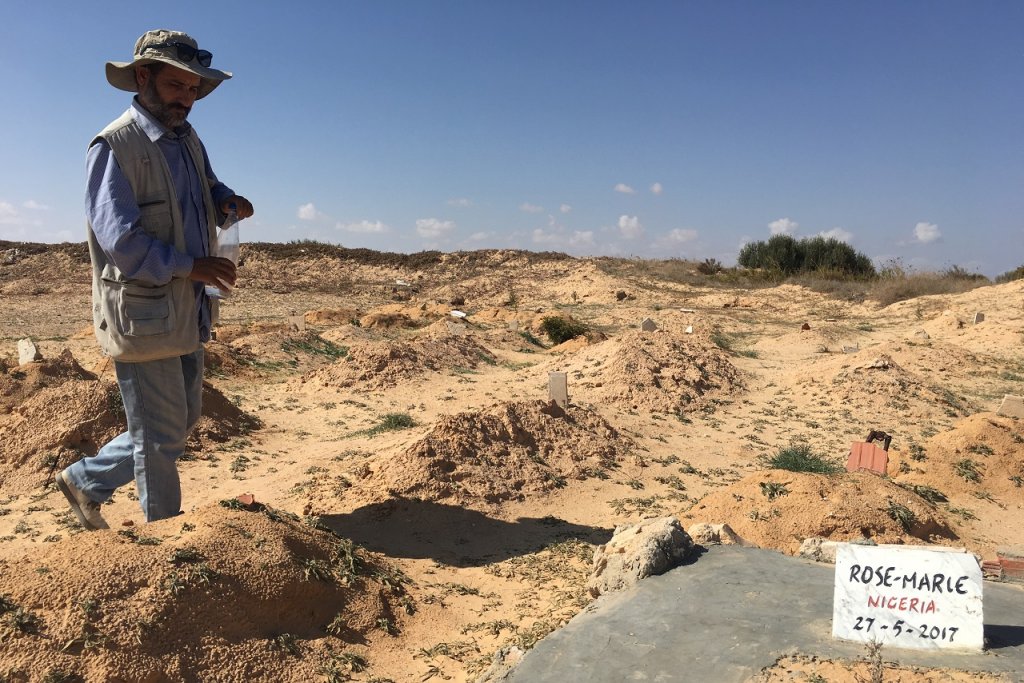
The Mediterranean will become a sea of blood if nothing is done,” is a cry launched in June 2019 by the spokesman for the United Nations Refugee Agency. It concerns the blood of migrants who lose their lives on the sea route. There is a lot of blood mixed with the salt water of the Mediterranean: A total of 15,000 corpses have been recorded over the past five years. In 2019, one of the eight people who have drowned on that road has drowned.
These bodies are part of his life the Tunisian Chamseddine Marzoug. “For fishing, instead of fish, we have cadavers.” Same thing on the beaches. It counts along dozens of the cold bodies of the anonymous landed by the torrents. “It’s very difficult to see rotting bodies, semi-men, semi-women, no legs, no head, especially when they’re children, it’s incredibly touching, because they’re innocent.” Zarzis lives in the city of Zarzis, 60 kilometres from Libya, where he served as a fisherman by profession, for years as a collaborator of the Ilargi Gorria association. This situation caused their discomfort and continued to lead a graveyard in 2011 in the name of the dignity of refugees. The cemetery, dedicated to the anonymous drowned in waters between Libya and Italy, has been baptized as a Cemetery of Strangers. “This graveyard is for those people who have suffered so much and we know nothing about them; they deserve a dignified grave.” He consulted the prosecutor's office with his permission to bury, took the body in the morgue, took it to the cemetery and made it a site, leaving a bouquet of flowers on the heap of land. It comes three times a week to water flowers. In November 2018, the cemetery had 400 corpses. A single one identified in: Rose-Marie, 28 years old and mother of Nigeria, buried on 27 May 2017. All the other anonymous. In an interview with Migrants, he asks Europe a favor: “I don’t want to see more cadavers, this problem has to be solved very soon. Do I ask Europe where you are? Instead of protecting borders, protecting these people.” The request was submitted in November 2018.
Since then the situation has deteriorated. The European Union’s (EU) disregard for rescue operations in the Mediterranean is clear: it no longer targets any ship but is permanently hampering the work of associations in rescue operations and, furthermore, has transferred most of the central Mediterranean area to the Libyan State, which is the area of torture and rape of migrants. “Chaos.” This word summarizes the situation of NGO Director Sophie Beau SOS Mediterraneo: “There is chaos in the Mediterranean.” The number of drowned immigrants in the Mediterranean in 2019 stood at 1,246 on December 15. But how many have been sinking without anyone realizing it? Beau has his answer clear: “Surely some boats sink without us knowing it. The road is very long and there are very few lamb casseroles to control everything.” In recent years, as both the EU and Libya accelerate blockages and obstacles to relief vessels, mortality has also increased.
Making the work of associations more difficult
If we look at the EU’s decisions, the irresponsibility of the states is all the more obvious. However, the seas are not areas without legislation; people’s rights do not disappear by melting in salt water. Following an agreement of 1985, and in such a way as to ensure the search for and binding of the rope, the sea areas are divided into Search and Rescue (BES) or Search And Rescue (SAR) areas, separated between the coastal states, much wider than the territorial waters of up to 19,3 kilometres of coastline. Under the United Nations Convention on the Law of the Sea, the State is obliged to provide assistance in the event of the discovery of a person in difficulty in the waters. What is more, it has to land, yes or no, in a port that is not on a battlefield. Since 27 June 2018, Libya also has its own BES space, supplemented in 2017 with a subsidy of EUR 8 million from the EU to Libya. Thus, it has extended its control space from 19.3 to 200 kilometres. This space has gone from being an area of Italy to that of Libya, where the coordination of the strings has also become the responsibility of the latter. “They prefer to live in the Libyan Calvary rather than cross the Mediterranean and die at sea.” As of June 2018, sokorri operations are even more difficult: warning calls from a ship in distress are left unanswered. Pressure and persecution of humanitarian aid workers in rescue operations has intensified. Moreover, since Libya is the one that is, the obligation to “land in a safe port” is trampled underfoot. Europe has accused the EU of being “complicit” in the mistreatment suffered by immigrants in Libya, which gave a further ten GKEk.Urrats in March 2019: Beginning in 2015, Operation Sophia's forces were dismantled to dismantle the networks of clandestine passers and to help refugees who had taken refuge in their boats. There are no more State boats in the Mediterranean. A few NGOs record the horizon trying to capture and save a few boats. Not as they want, however – as they can –. The administrative, judicial and political pressures suffered are terribles.Mare Jonio, Eleonore, Open Arms, Lifeline, Sea Watch 3, Iuventa... there are many more than the boats that have been allowed to ship. Many more have had to abandon their mission. When writing this article there is only one boat in the Mediterranean, the Ocean Viking of the SOS Mediterranean structure. Two more may be going to leave, but you can't tell until the last moment.
If necessary, they do not find a port ready to host ships loaded with refugees. No one wants them and a great deal of time is wasted on the inter-state distribution calculations and negotiations. “It’s a waste of time and thus a loss of life.” Because while you're watching a port, you can't work like lambs. The director of SOS Mediterraneo asks the European states to respect their rights and enforce their obligations. The decision of 24 October was the last step towards irresponsibility: On that day, the European Parliament voted against increasing the search and relief operations in the Mediterranean, according to the EC.
Following the figure of 13 November of the International Organization for Migration (IOM), in 2019 there were 91,568 entries of immigrants from the Mediterranean to Europe, including the routes to Greece and Spain. 11% less than last year. The European Commission regards this reduction as a reflection of the effectiveness of migration policy. Anyone who doesn't want to see it doesn't see it.
"Segurtasun gehiago, inmigrazio gutxiago". Bruno Retailleau barne ministro frantsesa argi mintzatu da, kargua hartu berritan. Etorkinen gaineko kontrola azkartu nahi du Michel Barnier lehen ministro eskuindar-kontserbadorearen gobernuak, eta jada Retailleauk aitzinatu... [+]
Europar Batasunean berriki onartu den Migrazio Itunak, asko zaildu dizkie gauzak euren herrialdetik ihesi doazen eta asiloa eskatzen duten pertsonei. Eskuin muturraren tesiak ogi tartean irentsita, migratzaileentzako kontrol neurri zorrotzagoak onartu dituzte Estrasburgon,... [+]
Migratzaileen kopurua anitz emendatu da Irun eta Hendaia arteko pasabidean. Irungo Harrera Sareak ohartarazi duenez, otsailean 600 pertsona lagundu dituzte, iaz, urte osoan 2.700 izan zirelarik. Iragan urtarrilean, 2.700 etorkin heldu dira Kanariar Uharteetara, egunero 80... [+]













